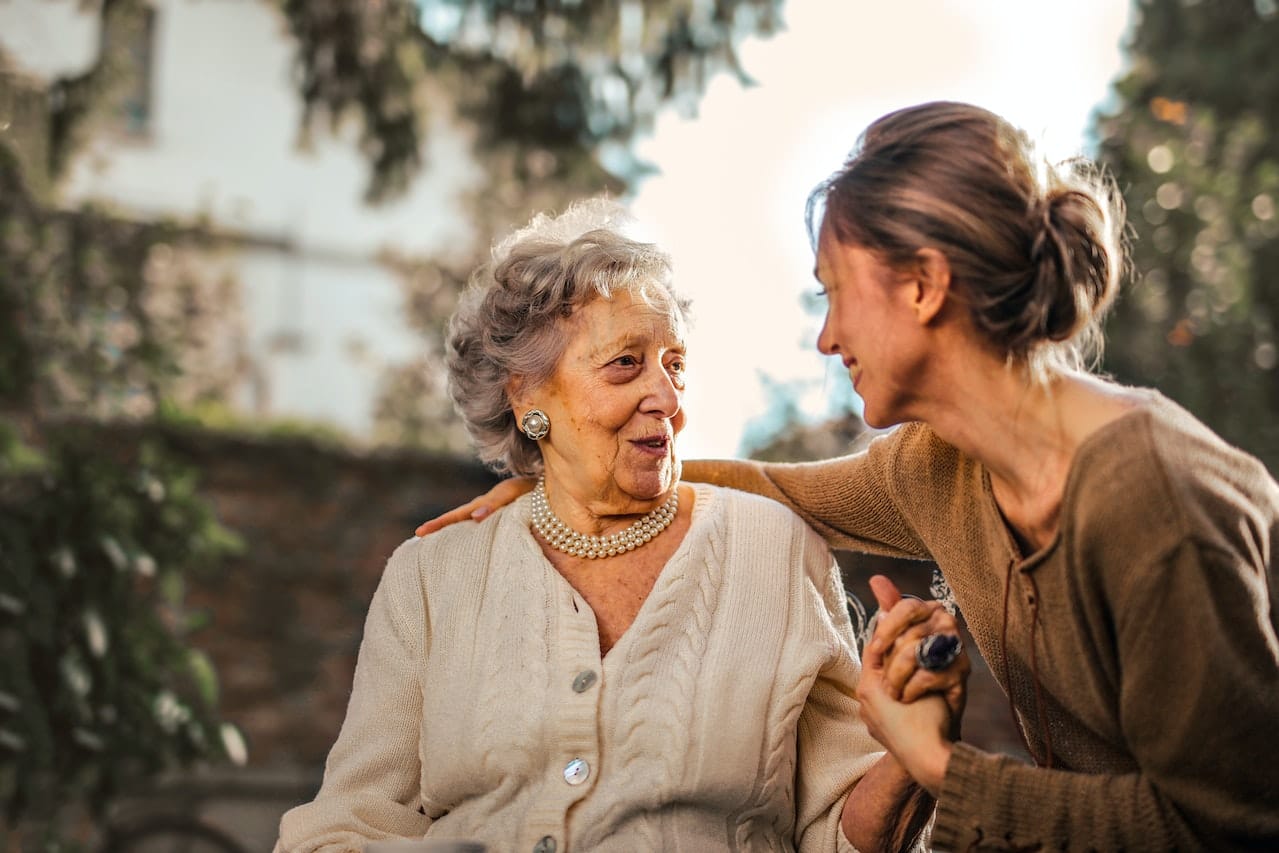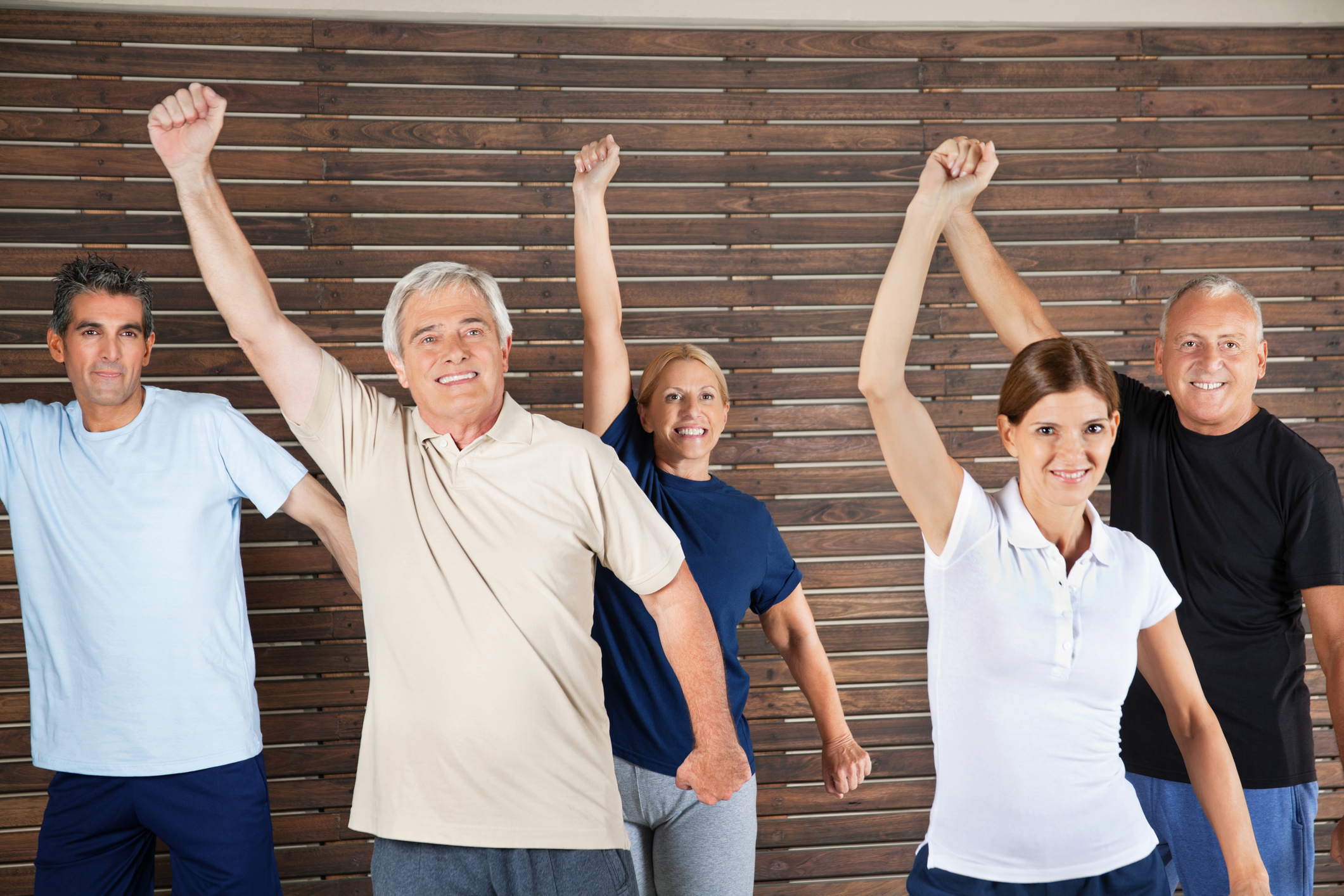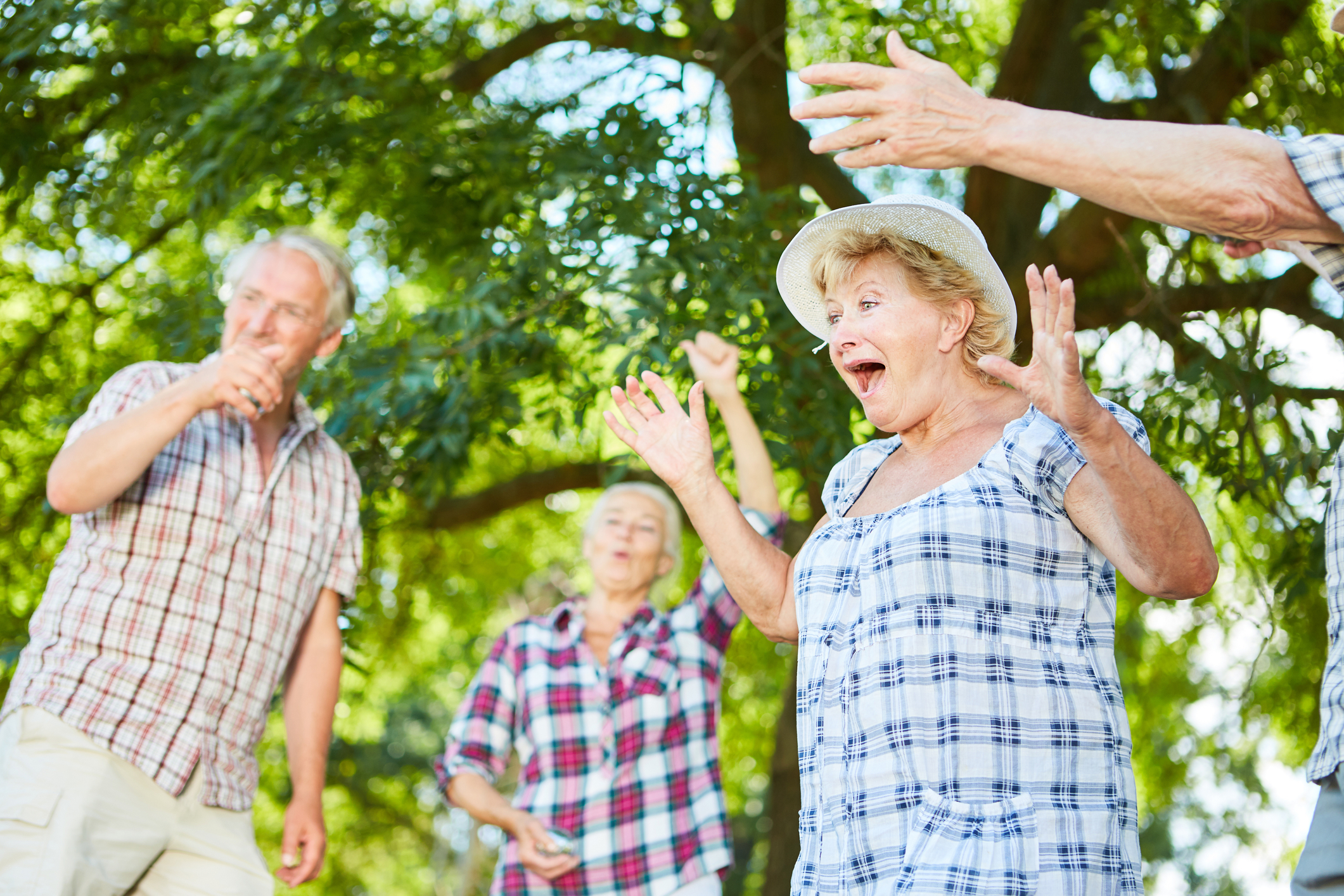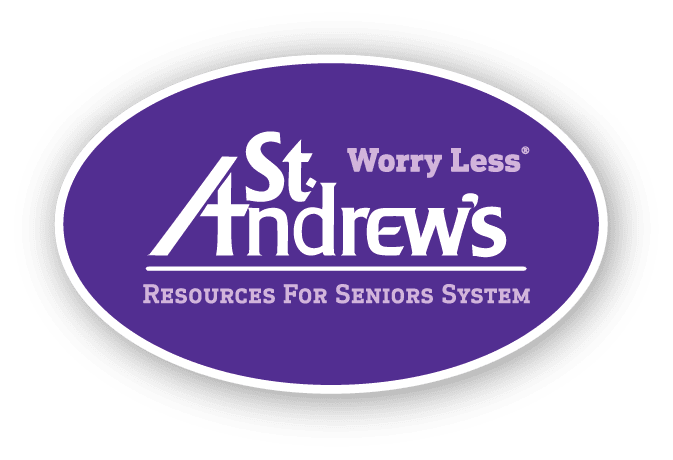What Mental Health Services Are Available to Seniors?

The National Council on Aging (NCOA) estimates that one in four older people experience mental disorders, such as depression, anxiety, and dementia. What’s even more problematic is that 66 percent don’t get the treatment they need.
At St. Andrew’s, we care about the well-being of our residents, which is why we believe prioritizing mental health is just as important as prioritizing physical health.
It’s Important to Seek Help
Over the past few decades, society has become much more open to mental health discussions and wellness practices. There is absolutely no shame in receiving help for mental illnesses; it is the same as getting help for physical illnesses like diabetes or heart disease. We encourage people living with mental illnesses (or concerned about a struggling loved one) to get help by talking to their health insurance provider or primary care physician to see if they can refer you to a mental health care provider in your area.
You can also explore the following mental health resources, helplines, support groups, and apps below to learn more about the mental and emotional needs of aging adults and where to find in-person or in-home care:
- American Geriatrics Society
- Centers for Disease Control and Prevention (CDC)
- Eldercare Locator
- National Council on Aging (NCOA)
- National Institute on Aging (NIA)
- National Institute on Mental Health (NIMH)
- National Alliance on Mental Illness (NAMI)
- Substance Abuse and Mental Health Services Administration (SAMHSA)
- Mental Health.gov
- U.S. Department of Health & Human Services
- World Health Organization (WHO)
4 Common Mental Health Conditions Seniors Face
The reasons senior citizens experience more mental health concerns are complex. They may have gone through the loss of a spouse or other family member, feel socially isolated, be physically compromised by a disability, have feelings of uncertainty about the future, or simply be suffering side effects from a medication.
Learning about common behavioral health conditions can help you improve your mental wellness. Take the first step towards improving your mental wellness by seeking help from a senior center, social worker, or geriatric mental health professional.
1. Anxiety
Anxiety is an incredibly common mental health need among the older generations, although it is oftentimes underdiagnosed in the elderly demographic.
If you’ve experienced anxiety and panic attacks – which have physical symptoms like chest pain, a racing heartbeat, shortness of breath, dizziness, and fear – it’s possible you didn’t understand why. Anxiety is rooted in fear, but it’s not always logical. The onset of anxiety can also be traced to an event, such as a fall or the loss of a loved one. If you’re experiencing anxiety, know that you’re not alone, and it’s okay. In some cases, therapy and/or medication can help.
Resources for Anxiety:
- American Association for Geriatric Psychiatry, “Anxiety and Older Adults: Overcoming Fear and Worry”
- Mental Health America, “Anxiety in Older Adults”
American Psychological Association, “Coping with Stress and Anxiety”
2. Depression
Depression is one of the most common mental health problems in the world. The roots of depression can be the same as anxiety: isolation, loss, uncertainty, and physical struggles. However, it’s important to understand that depression is a condition, just as diabetes and hearing loss are conditions.
Resources for Depression:
- Health in Aging, “Depression”
- Administration on Aging (AoA), “Eldercare Locator”
National Institute of Mental Health, “Older Adults and Mental Health”
3. Dementia
Dementia is a condition in which a decline in mental ability – memory, organization, reasoning – interferes with a person’s ability to independently live their daily life.
Alzheimer’s is the most common kind of dementia, but not every dementia case is limited to Alzheimer’s. Additionally, Sundown Syndrome is a condition that is common among people living with dementia. It occurs later in the day and is marked by symptoms like confusion, agitation, wandering, and aggression.
Overall, dementia symptoms include constant short-term memory problems such as misplacing personal items such as a purse or keys (or putting them in odd places), mismanaging money, forgetting to pay bills, struggling to plan and prepare meals, forgetting errands or appointments, or getting disoriented in places that used to be familiar. Dementia can be difficult not only for the person suffering from it but also for that person’s caregivers, who are constantly faced with decisions about what the person can and cannot do on their own.
Resources for Dementia:
- National Institute on Aging, “Alzheimer’s Disease and Related Symptoms”
- Alzheimers.gov, “Life with Dementia”
From the American Psychological Association, “Cognitive Aging Efforts”
4. Substance Use Disorders (SUDs)
Studies show that substance abuse among the elderly is on the rise. Commonly abused substances among this group include alcohol and prescription drugs like opioids.
Resources for SUDs:
- Substance Abuse and Mental Health Services Administration, “Behavioral Health Treatment Services Locator”
National Institute on Drug Abuse, “Substance Use in Older Adults Drug Fact Sheet”
Resources For Professionals, Caregivers, & Loved Ones
Professionals, caregivers, and loved ones can always improve their approach to mental health care and advocacy. The following resources are designed to help two groups of people: (1) untrained professionals, like friends and family, who are attempting to help their struggling loved ones, and (2) physical and behavioral health professionals and caregivers who want to improve the quality of the services they provide to seniors.
- National Alliance on Mental Illness (NAMI), “How to Support a Loved One’s Mental Health”
- National Council on Aging (NCOA), “Behavioral Health for Professionals”
- National Institute on Aging, “Depression and Older Adults”
- Substance Abuse and Mental Health Services Administration (SAMHSA), “OLDER ADULTS LIVING WITH SERIOUS MENTAL ILLNESS: The State of the Behavioral Health Workforce”
Prioritizing Your Mental Health and Wellness
No one is immune to mental health struggles – they can happen to anyone at any time of life. Here are some things that can help your mental health and wellness on a daily basis:
- Exercise: Exercise increases blood flow to the brain, affecting parts of the brain that control mood, motivation, fear, and memory formation. Aerobic exercise, even regular walking, has proven to reduce anxiety, depression, and stress. Exercising for at least 15 minutes a day can improve your quality of life, be helpful in providing a distraction to potential stressful situations, and it’s a great way to stay in shape. Be sure to check with your doctor to see which exercises are safe to do and then they can be incorporated into an exercise plan that can be utilized regularly.
- Nutrition: The saying “we are what we eat” has been shown to be true. The foods that are put into the body have an effect on how the brain operates. Your body needs vitamins, minerals, and antioxidants; it doesn’t need excess sugar. In fact, multiple studies have shown that refined sugar actually makes symptoms of depression worse. Make sure to include healthy foods that have B vitamins and Omega-3s in your diet to improve your mood and mental clarity.
- Meditation: Also, according to Harvard Medical School, adding meditation to your mental health program has been shown to help you better sleep, cope with stress, handle depression and anxiety, and even improve pain and some cognitive ability. During meditation, research has shown that blood pressure decreases and breathing becomes slower and more rhythmic. This can be especially helpful for the person who likes to have some alone time during the day to relax and clear their mind.
Social and emotional support: Another important factor in mental health is maintaining strong connections with others. Research proves that having a social support system – friends, family, coworkers, people in your faith – is a major player in the wellness game. Having social and emotional support helps fight against feelings of isolation and despair.
Social Programming at St. Andrew’s
For some seniors, community-based living is a huge contributor to their social support network, providing opportunities for interaction, camaraderie, and scheduled activities that they wouldn’t have living at home. Some activities offered in our senior living communities include happy hours, fitness classes, music programs, pet therapy sessions, chauffeured trips to the movie theater, and group meetings of people who share the same hobbies.
St. Andrew’s communities offer older adults senior housing options with an emphasis on fun, friendship, and maintenance-free living. Staff members take care of the mundane, like housekeeping and yard work, so that residents can focus on what really matters: making connections and living each day to the fullest.
Schedule Your Tour Now
Like an old-time neighborhood enhanced with modern conveniences, living here is delightfully comfortable and convenient. You’ll love our pocket neighborhood lifestyle, where activity abounds, and residents spend time with their neighbors.
Whatever puts a smile on your face, you can do it here! From our services and amenities to fitness, learning, and social fun, contact us now to see what we can do for you.
Disclaimers: This article is for informational purposes only. The content contained herein cannot be used to diagnose, treat, cure, or prevent any disease or condition. This resource list is not exhaustive.







